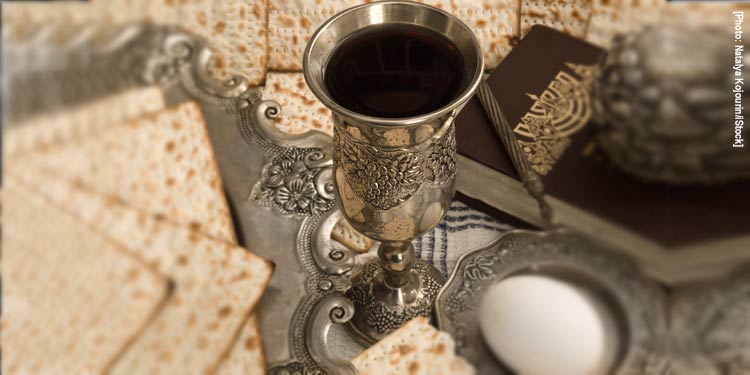A Holiday Called Passover
Rabbi Yechiel Eckstein | April 10, 2017

A note to our readers: Beginning at sunset today, the Jewish celebration of Passover takes place for the next eight days. For each day of Passover, or Pesach in Hebrew, we will offer a devotional reflection tied to this very special observance as well as Torah readings for each day. Since no work can be done during the holiest of these days, these devotions were prepared in advance for you.
“The blood will be a sign for you on the houses where you are, and when I see the blood, I will pass over you. No destructive plague will touch you when I strike Egypt.”—Exodus 12:13
Perhaps you have wondered why the holiday is called Passover. Sure, we know that the name comes from the plague of the firstborn when the angel of death “passed over” the houses of the Israelites marked with the blood of a sacrificed lamb and only took the Egyptians’ firstborns. But that’s just one of the many acts of God in the story of the Exodus. Why not call the holiday after the more glamorous miracle of the sea parting? Or maybe we could have called it “Exodus” which captures just about the entire story. Why Passover?
The Jewish sages explain that every holiday on the Jewish calendar is not just about events that happened in the past; they are about events happening right now in the present – in the world around us and in our own personal lives. There is an energy that permeates every holiday, every year. Yom Kippur is a time of forgiveness. Hanukkah, a time for miracles. Purim, a time of joy and salvation. What’s the energy associated with Passover?
Passover is a time of change.
The name Passover isn’t just about an act of God that occurred thousands of years ago. Passover also refers to the actions of men and women that can and should happen every year during the holiday. All year long we talk about the changes we’d like to make in our lives — we’d like to become more patient or less angry, we’d like to make more time for prayer and Bible study. Or maybe we’d like to make a major lifestyle change. All year long we talk and we think and we deliberate and we plan.
On Passover, it’s time to pass over all of the thinking and skip right to the doing. It’s time to change.
Remember how matzah was invented? God said to the Israelites, “Time to go!” The Israelites replied, “Great. We just need to finish baking the bread, prepare a few things . . .” And God said, “No. It’s time to go now!” So the Israelites took their dough and made it into the flat bread we eat on Passover called matzah: “The dough was without yeast because they . . . did not have time to prepare food for themselves” (Exodus 12:39).
This is the time of year for doing the things we have been putting off because we didn’t have all the right ingredients. The truth is if we wait for perfect conditions, we may be waiting forever. It’s no accident that Passover takes place in the springtime. It seems that nature all around us is changing, blooming, and blossoming. It’s time for us to blossom, too!
So, what are you waiting for? Make that call, make that change, and say “yes” to a new opportunity. It’s time to go — now!
